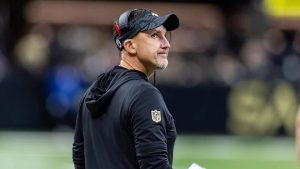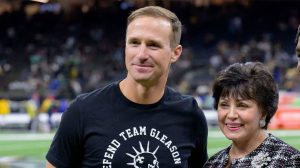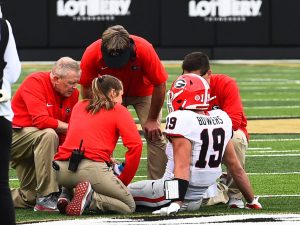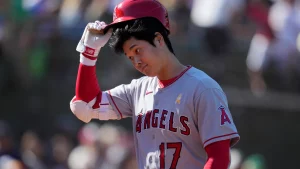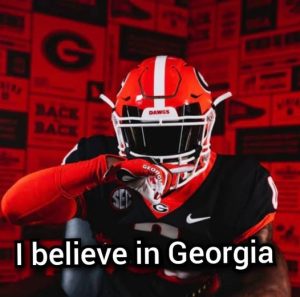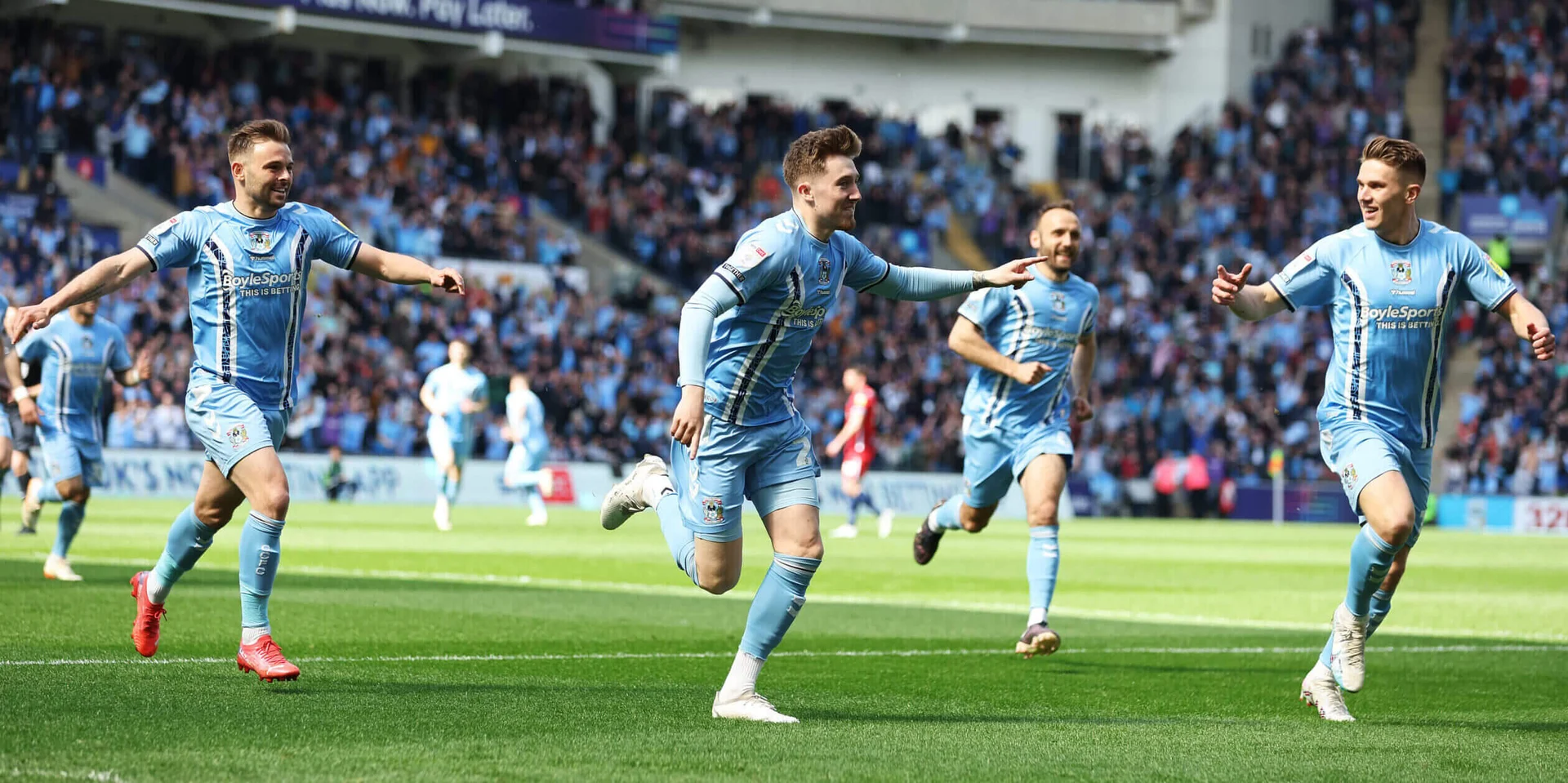
It is Easter Monday in 2018 and Coventry City are at home to Yeovil Town. Coventry are sixth in League Two, English football’s fourth tier, 12 points behind leaders Accrington Stanley. They are in the play-off places but staying in them is not guaranteed. They have just drawn 1-1 away to Newport County. This is the company Coventry keep.

Yeovil, meanwhile, are 18th. They are punching above their weight simply by being in the EFL. Coventry, alas, are not.
The attendance is 8,787. The expectation is of a home win and at half-time the score is 3-0. However, it is 3-0 to Yeovil, and although Coventry score twice in the second half, the visitors get another three. When the whistle blows on a 6-2 home defeat, it is impossible to see the Premier League on the sky-blue horizon.
But five years and one month on, Coventry stand on the brink of a third promotion in that time and a place in the richest league in the world. “One game away from a dream,” as Mark Robins puts it.
Robins was the manager then, and Robins is the manager now. The scale of the rise he has overseen is mountainous.
“That was really disappointing,” he says, recalling that Yeovil game clearly. “One or two of the players had been out for a snifter or two (drinking) before that game and when I found out, it didn’t happen again. I wasn’t best pleased.
“I went up into the boardroom after and Tommy Widdrington, who was head of recruitment, let me know he was off to Bristol Rovers.
“So it wasn’t the best of days. Ultimately, we got over that bump in the road.”
Bumps in the road, potholes, diversions and breakdowns have been part of the Coventry City travelogue since Robins drove back into the club in March 2017.
He had been there briefly once before, in 2012, when they were in the third tier for the first time since 1964. That was daunting, yet in 2017, the destination was League Two and, with a fanbase disconnected from the club’s ownership and the players, it felt like Coventry, members of the inaugural Premier League in 1992, had run out of road.
“It was done, it was done. You could feel everybody had given up. It was as bad as any club I’d ever worked at. Terrible.”
Robins, 53, said that in the wake of Coventry’s 1-0 win at Middlesbrough in the second leg of the Championship play-off semi-final a week ago, and was reflecting on what the club were and where they had been compared to where they are and could go.
In the days since that victory over Middlesbrough, he has been asked to revisit the journey, not out of ghoulish fascination, but because where he and Coventry started in 2017 makes the potential arrival in the Premier League come August all the more unexpected.
Luton Town & Coventry City: final league positions since 1986-87
Both clubs finished in the top ten of the English football pyramid in 1987 and 1988. Luton dropped out of the top-flight in 1992 while Coventry did so nine years later
Even this season has not run entirely smoothly. Coventry were bottom of the table on October 1. They did have games in hand, but the fact their situation was a result of being unable to play at home due to the state of the pitch after the rugby sevens tournament in the 2022 Commonwealth Games was another example of the ruts Robins has had to negotiate.
Trying to explain, at one point, he says: “You’ve got to zig instead of zag when, really, you want to stay on a straight line.”
One thing about that 2018 loss to Yeovil was that, six weeks later, Coventry had recovered to overcome Notts County in the League Two play-offs to reach a Wembley final against Exeter City. Goals from Jordan Willis, Jordan Shipley and Jack Grimmer then propelled them back to League One and gave Robins authority over the club’s direction.
Asked if he has been more than a manager at times, he replies: “It’s fair. Sometimes I might overstep, but it all comes from a good place.”
Were there moments, such as Yeovil, when he wondered whether turning Coventry around was possible? His answer is emphatic.
“No, never doubted anything. The reason for that is that I had a real good idea of what was needed, what I wanted to do; and I had the support of the owner, Joy Seppala.”
It is an understatement to say Seppala’s SISU ownership was not always popular, but Robins has seen the club from the inside and he is quick to praise others as well as Seppala. Robins sees the appointment of Dave Boddy as chief executive as instrumental, he mentions coach Dennis Lawrence and says “all the support staff have been fundamental”.
Robins offers particular recognition to Adi Viveash, someone he first encountered as a Walsall team-mate in 1999. Viveash had been coaching in Chelsea’s academy for six years when Robins called in 2017.
“Steve Taylor,” Robins says, “my number two for a number of years, had a brain haemorrhage before the game against Newport County in 2017 and had to retire unfortunately. On the back of that, I brought in Adi Viveash. He has worked at elite level with young players and developed them. He knows what an elite environment looks like from a coaching perspective. I knew him from when I played at Walsall, when he was the captain of that promotion team.
“I’d not spoken too much to him, we weren’t close friends, but I had a lot of respect for him, certainly the work he has done on development, which was key to how we wanted to move forward. While I’ve had to manage the club – and there’s been a lot of work gone into that – he’s helped me enormously.”
The confidence to delegate and the willingness to recognise the contribution of others appear to be Robins’ key characteristics. While his undemonstrative touchline stance, with hands in pockets, carries the look of a disappointed parent, he insists he is “a brilliant actor — you know, the proverbial duck on the water”.
There is adrenaline pulsing through him, plus a dry sense of humour.
“Consistency” is another quality, one noted by Liam Kelly, a player who has been with Coventry the whole way from League Two. Kelly played in that 2018 play-off final against Exeter.
“From that point on, it’s been really good,” Robins says. “We’ve managed to build season on season, and this season has been exceptional – in terms of the start we were handed and all the other issues we had. The fact I remained in post when others didn’t when we were bottom of the table in October, that’s something you look back on. We managed to navigate our way through a difficult period.”
By early February, before hosting Luton in a game that finished 1-1, Coventry had escaped the relegation zone. But they were 15th that morning. Luton were fourth.
“We’re under no illusion, they’re the favourites,” Robins says of Saturday’s play-off final, which Luton fans will find amusing – they are hardly giants and were in League Two themselves five years ago. “We definitely weren’t expected to get there (Wembley). The change of ownership has helped to change focus and the five-year plan we spoke about has been accelerated by five years. We’re ahead of the curve on that front.
“When I say we have achieved incredible things over six years, and certainly this season, I think we’ve not achieved anything tangible yet. We’ve got to go and try to finish this off. But to be in a position to try to do that is in itself incredible. We’ve got to enjoy it.”
Another detour: back to the first game of Robins’ managerial career. It was with Rotherham United in 2007, when he moved from being Alan Knill’s assistant to being his replacement as they sat bottom of League One.
Robins was 36. He had a playing career that began, famously, under Alex Ferguson at Manchester United in 1988 and finished off the radar with Nigel Clough as his boss at Burton Albion in 2005. What was his managerial plan?
“There was no plan for me to be a manager,” Robins says. “I’d done my coaching qualifications when I was 32. I organised to do a level two coaching qualification. It was two years before I finished playing. I carried on doing the qualifications and was invited onto the course at Warwick University. It was more management than coaching, but I really enjoyed it. I went and did the A licence the same summer, so it was a heavy schedule. But it was really good.
“I’d started to do that and was asked to go and assist Knilly (Alan Knill) when he was manager before Mick (Harford) came. Looking back on it, I had zero impact on Knilly. I had no experience and it was difficult for Knilly in his first role. Then Mick came in and I became the youth-team coach, a baptism of fire, not really had much experience. But in terms of the managerial and coaching side of things, it was brilliant.
“I still didn’t think about the managerial side of things at all. Then Mick left, Knilly took over, he left, then they asked me to take over. It was difficult, a 10-point deduction, then administration, coming out of administration, not satisfying the creditors and ending with a 17-point deduction.
“I’d got the job and when you’re sat in the chair… I remember my first game. It was against Bradford City, I was caretaker manager and we won 4-1. I remember the elation from winning, but they had three goals disallowed. So you know you’ve won by a brilliant margin, but it’s lucky.
“I went to watch Port Vale, our next opponents, and thought, ‘OK, we’re in a decent place’. Rubbish. We lost 5-1.
“I went home, went to bed and pulled the cover over my head. I remember it and how I felt – the lowest I’d ever felt in football – and then literally after about 15 minutes of reflecting on it, I got up and set about what I wanted to do. That was the point where I thought, ‘Yeah, I can do this’.
“You just don’t know until you’re in the seat if you can do the job. Sometimes I go back to that, infrequently. There’s been so much adversity in my managerial career – the turbulence here – that first job at Rotherham stood me in good stead.”
In January of this year, Doug King completed his 100 per cent purchase of the club, restoring the official company name to ‘Coventry City Football Club Limited’. It is a detail that matters to supporters, as does the fact there is no debt and the CBS Arena – formerly the Ricoh Arena – will be home for the next five years.
The Sky Blue Lodge training ground is already having its pitches and facilities upgraded and, in the week of that play-off victory at Middlesbrough, there was also a new four-year contract announced for Robins.
A successful local businessman based in Stratford-upon-Avon, King has not been in the idiosyncratic football industry long, but as Robins says: “He’s brilliant, he finds his feet quickly.”
And even if Luton win at Wembley tomorrow, Coventry fans will hardly complain about their club’s trajectory. As Robins says: “The club feels in such a good place, it’s ready to take-off. With the right backing, which I know we’re going to get, we can change this for the foreseeable future.”
Having said that, Robins swiftly notes that “next season’s Championship is going to be ridiculously difficult. You’ve got teams coming up with a lot of financial clout, you’ve got teams coming down which will have an awful lot of financial clout. And they will spend. They will do what Burnley did in terms of getting top, top players for the level, which gives them a chance of bouncing back.
“That’s the difference with the two teams, Coventry and Luton; it remains to be seen what would happen next.
“Ultimately, if you go up (to the Premier League), the expectation from outside is that the team will struggle and return to the Championship. So whatever you do, you’ve got to put things in place to try to remain competitive without killing the club. Those are things we’ll certainly be addressing and have addressed to a degree.
“We’ve got to stick to what we do. If you get to that next level, you can think about the level of player you’re going to need, allied with the ones you’ve already got.”
Coventry City’s finest day came at Wembley in 1987, when they defeated Tottenham 3-2 in a dramatic FA Cup final. Their gregarious, gifted manager was John Sillett and Robins references him when saying his players on Saturday “will be heroes” should they beat Luton and rejoin a top flight the club have not been part of since 2001. They will have “cult status”.
“One of the biggest things I’ve noticed,” Robins says of that 1987 side, “is John Sillett’s biggest legacy – the fact that team remain together, still get together, play golf, go for drinks, fundraise, come to the games; they are always together and they are a brilliant set of people.
“All those former players I’ve met are fantastic and synonymous with this club. That’s something that sticks with me.”
He is a grounded individual, Robins. But he can see the romance in Luton versus Coventry in a play-off to reach the Premier League five years after the clubs met in the fourth division. He allows himself to feel pride at the “reconnection” between the supporters and his players. “Their humility helps,” he says of his squad. And he feels the value of friendship among that 1987 team.
“Fingers crossed, if you’ve got that spirit, it can take you a long way.”

